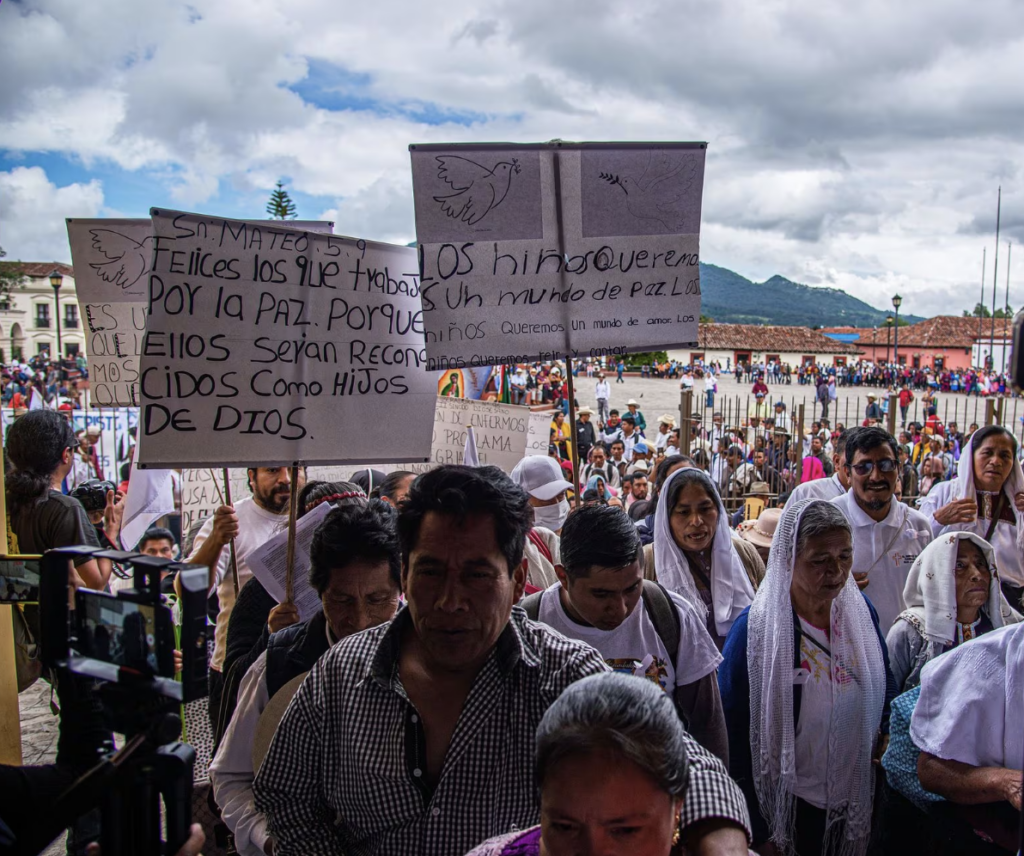40 members of the armed forces are currently serving time in military prisons for having links to drug-trafficking organizations. General José Luis Chávez García, the head of the Attorney General Office of Military Justice (Procuraduría de Justicia Militar), said that such cases of wrongdoing are treated very seriously in order to ensure that there is no impunity within the armed forces. The Mexican military has been a key component of the Calderón Administration’s war against organized crime since President Calderón took office in December 2006.
Its role has come under greater scrutiny as it enters its third year of direct involvement. Claims that allegations of human rights abuses are not looked into by superiors and that violators are not held accountable by the military courts have caused concern. Some have questioned the army’s continued role. In an interview in early March 2010, José Reyes Baeza, Governor of Chihuahua, indicated that though he agrees that President Calderón’s initial use of the military was appropriate, it is now time for a change in strategy that will transfer major responsibility for public security back to local and state law enforcement agencies. Though he would not give an exact date for this, he said he would like for the army to be withdrawn by the time President Calderón leaves office in December 2012. He added that ending its role would also preserve the army’s prestige and positive image.
Public confidence in the army has decreased in recent months. According to the poll Consulta Mitofsky, the percentage of Mexicans with “high” confidence in the army has dropped from 41% in January 2009 to 34.4% in January 2010. In spite of this, of the fourteen institutions ranked in this poll, it is still the second-highest, outdone only by the Catholic Church with 41.2%. It also continues to rank much higher than the police. Only 8.6% of those polled had “high” confidence in this entity.
Nearly 500 members of the armed forces are in military prisons for various crimes, according to General Chávez García, including the 40 convicted for ties with drug trafficking organizations. When asked about human rights abuses by the military, he said that there are currently 37 active investigations initiated by recommendations by the National Commission on Human Rights (Comisión Nacional de Derechos Humanos, CNDH), which investigates allegations of human rights violations and is empowered to oblige public agencies to launch official inquiries into specific cases. Of these active investigations, 27 could result in indictments affecting 40 people. He stated that “there have been mistakes and serious ones.” Nevertheless, he also said that every organization has people who are flawed, make mistakes, or fail to do their duty and that the military is no exception.
Sources:
“Debe Calderón regresar al Ejército a los cuarteles.” El Heraldo de Chihuahua. Marzo 5, 2010.
Otero, Silvia. “En prisión, 40 militares por nexos con el narco.” El Universal. Marzo 20, 2010.
Confianza en las Instituciones: Febrero 21, 2010. Encuesta Nacional en Viviendas. Consulta Mitofsky.




